

A startup’s success is highly dependent on discovery. It’s all about using different ways to reach the right audience, tactics to acquire customers, SEO, GTM strategies, product launches, and many other things. This is what I learned while running my startups for the last 10+ years. And, what better way to master this than dissecting the strategies of those titans who have successfully nailed it?
So, I have come up with a series in which I will research, analyze and guess the secrets of several tech giants and innovative startups.
Each post of the series will give you a blueprint of the company’s success journey and key takeaways so that you can speed up that discovery phase! Subscribe now to get the articles right in your Inbox.
Building my startups without external funding, I always believed that the 2 major factors contributing to a company’s growth are SEO and paid marketing.
Then, I came across Notion’s stats, which changed my perspective entirely.
And all this in just 6 years!
My first thought? They must be wizards at SEO. And indeed, they excel in it, but surprisingly, SEO wasn’t their primary driver of success.
So, what exactly did Notion do to challenge the traditional methods of driving traffic?
Join me as I break down how this $10 billion giant with more than 4 million paying customers boosted their business exponentially.
I guess Ivan wanted to see how well the redesigned tool would do, so he decided to use Product Hunt (a great platform for people to try and review products).
Thus, Notion Beta was launched on Product Hunt in August 2015 as a tool for writing and working together on documents. This not only sparked interest among the hunters but also fetched good upvotes and comments that helped Ivan improve the Product.
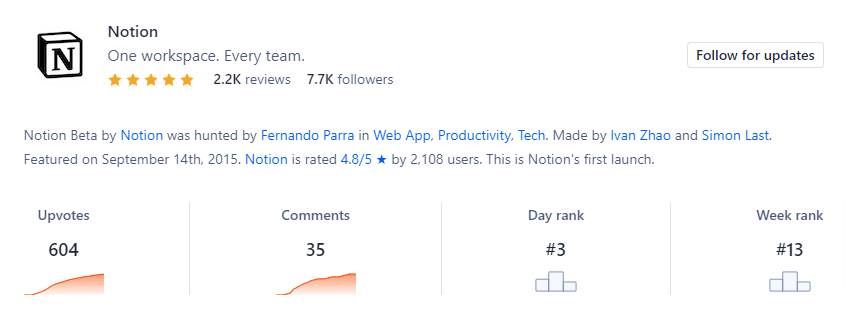
He also sparked curiosity in discussions by hinting that a new version would be coming soon. This helped him a lot when Notion 1.0 was launched. It got a whopping 6522 upvotes and won several awards on Product Hunt.

Thus, Notion started gaining attention and traction.
Then came Notion 2.0 in March 2018, which was another hit, grabbing the awards for Product of the Day, Week as well as Month!


I also noticed that during this period they usually increased the paid ads:
In summary, combining Product Hunt with paid ads seems to be a winning formula for Notion to achieve that initial growth.
Also, a quick glance at their organic traffic shows a noticeable exponential growth majorly after 2019.
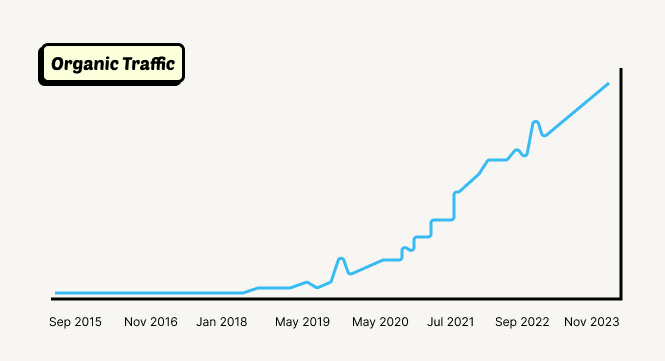
This made me wonder: What was the game-changer element for Notion?
Well, it was the hiring of their first marketing person, Camille Ricketts, that changed Notion’s trajectory.
She was smart enough to analyze Notion’s journey till 2019, and quickly notice that post-Product Hunt launch, many people were talking about Notion. There were small groups active on platforms like Twitter, Reddit, and Facebook who were discussing Notion.
There were topics revolving around what is Notion, how to use Notion, calendars, workspace notes, etc.
She also noticed that there was a Notion fan named Ben Lang who had:

Camille identified that these people were like mini power stations that could be turned into strong supporters for Notion. That’s when she hired Ben, and things started rolling.
Also, Notion made sure not to disrupt the existing communities and their style of working. Neither did they club the communities into a single one because they wanted their loyal fans to use their own voice, style, and promotion tactics as per their choice.
So, rather than taking away their freedom, they engaged with such active user communities and offered them the required resources. They also initiated programs to maintain strong connections with these enthusiastic members. These efforts led to a group of dedicated Notion users who further contributed to Notion’s overall growth and improvement.
Today, there are 1000+ Notion Ambassadors and influencers, as well as 60+ Notion Consultants, who are fueling Notion’s traffic.
Besides, there are several active Notion communities and influencers across:
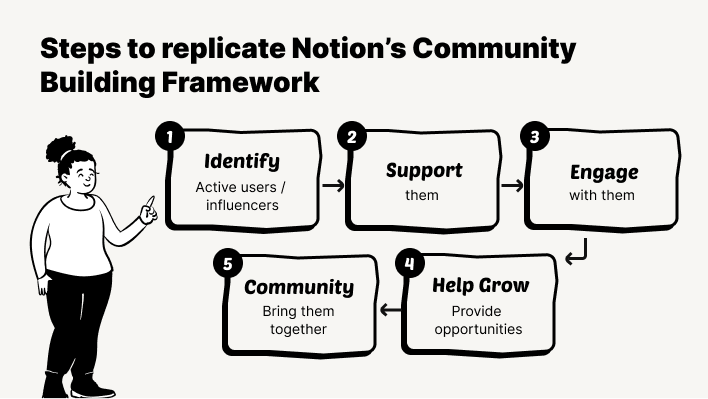
Can you imagine the impact these communities had on Notion’s incredible journey?
Let’s delve into the analytics for a moment. On average, the total searches containing the word `Notion` is over 3 million per month! That’s significantly higher than the search volume for other major players in the productivity space like Asana, Trello, and ClickUp.
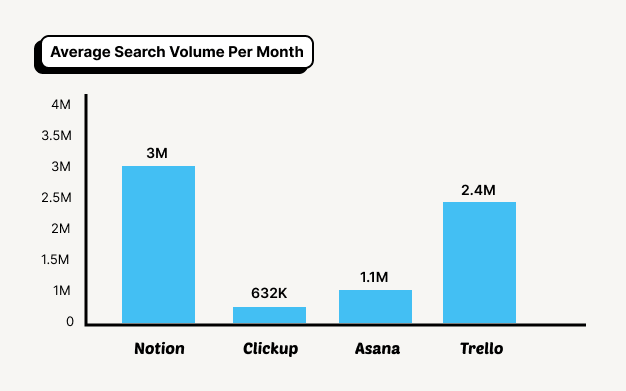
But here’s what truly stands out – a substantial portion of the traffic lands directly on Notion’s:

This tells us something crucial. People aren’t stumbling upon Notion by chance; they are actively seeking it out.
So, why do people search for Notion? It’s likely because they’ve heard about it from someone, perhaps through conversations in communities or while seeking solutions to their real-world problems that others have solved.
This emphasizes the pivotal role of community and word of mouth in Notion’s extraordinary success – The strongest channel that has worked for Notion!
Reference: https://youtu.be/JMalsoeooDA
Notion did not just stop at building communities; they went further to create an entire ecosystem around it.
Their first step was identifying vocal users and turning them into brand ambassadors. These ambassadors received special privileges like:
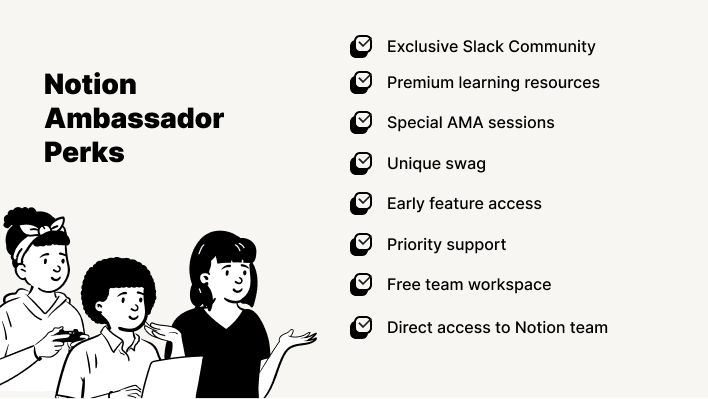
This approach instilled a sense of ownership in each ambassador. They actively contributed to Notion’s development and took on the responsibility of spreading the word.
Notion provided these ambassadors with all the necessary resources and support, including funding for hosting events, meet-ups, and online discussions. As a result, Notion has created a network of over 200 ambassadors spanning 23 countries. They have been the ones driving the wheel for Notion and scaling it across the globe.
Apart from investing in the ambassadors, what’s truly remarkable about Notion is their commitment to giving back to the entire community. They’ve designed multiple avenues to benefit each Notion user and have created a win-win ecosystem consisting of elements like:
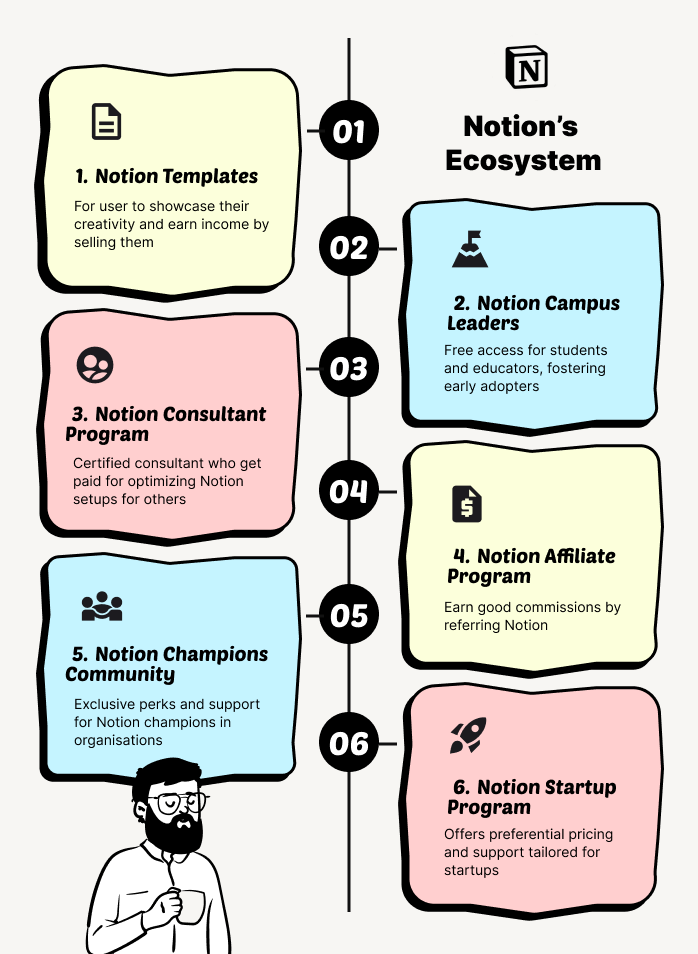
Besides these, Notion hosts events and webinars to support community groups and forums. These initiatives encourage user interaction, knowledge sharing, and support, benefiting the users as well as Notion.
All these elements club together to elevate Notion’s community and ultimately drive people to Notion.
At the core of Notion’s framework, the community functions like a high-powered engine, vigorously driving massive organic traffic.
And, the numbers speak for themselves!
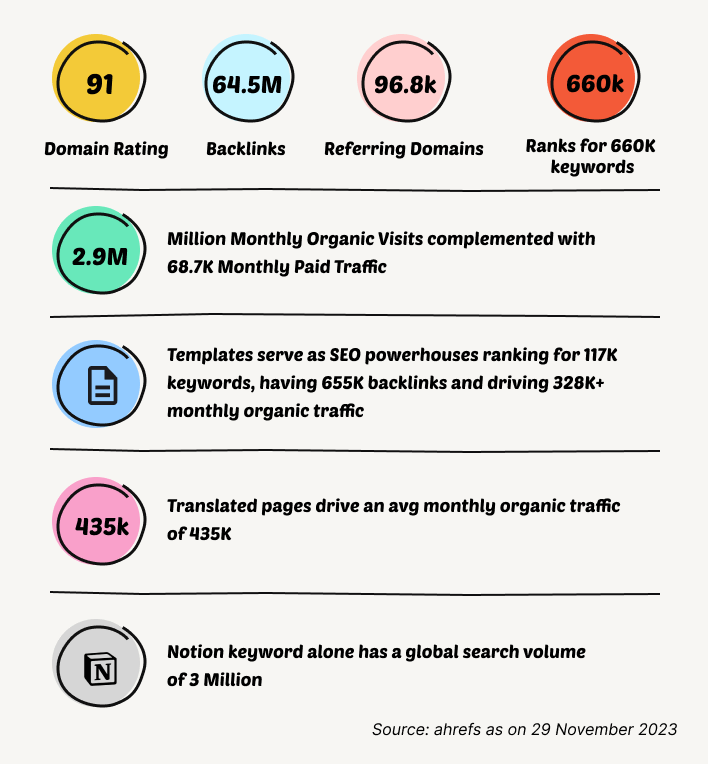
Further analysing the Notion stats, I could notice the 3 main pillars driven by the community that have exploded Notion’s organic growth:
They have worked as the Midas touch in growing Notion’s organic traffic. Each of the template pages serves as an SEO mini powerhouse owing to its characteristics like:
These templates draw in around 15% of Notion’s traffic and have 650K+ high-quality backlinks. That’s indeed huge!
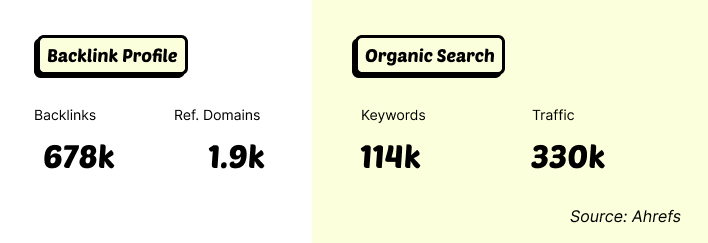
Starting in March 2022, Notion’s foray into translated pages has been another game-changer. These pages now make up about 35% of Notion’s total organic traffic, drawing an average of 900K+ monthly organic visits. This strategic expansion has significantly broadened Notion’s international user base.
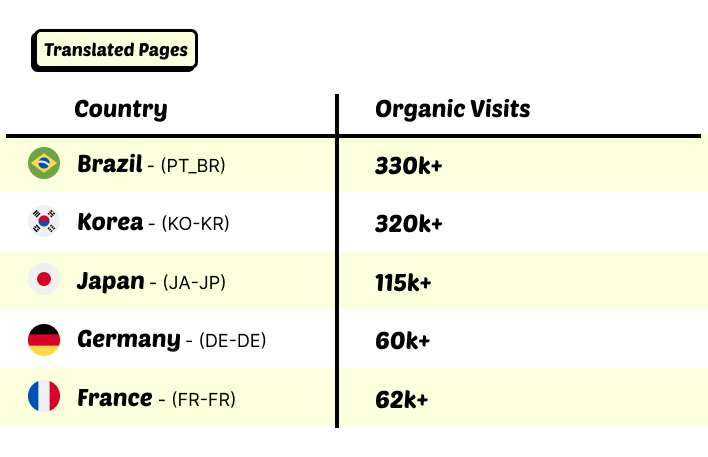
Notion provides detailed help guides and solutions to users seeking guidance. This has made it another hub for extensive backlinks and traffic, directly addressing user queries and enhancing SEO.
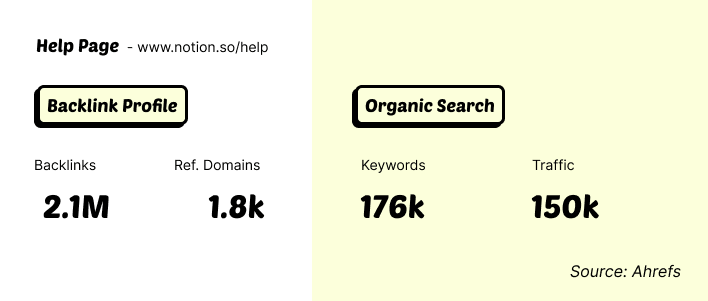
The blog is yet another source that Notion uses to provide quality content and engage its users. This further drives a good amount of organic traffic and backlinks.
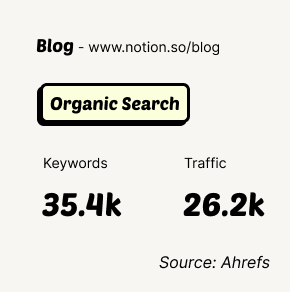
Notion compliments its organic growth efforts with paid marketing. Here are a few key observations that caught my attention:

All in all, dissecting Notion’s growth story gave me big-time learning of how community and word-of-mouth can work wonders, not just for brand building but for SEO as well.
Here are some quick takeaways for you to steal :

Free biweekly newsletter.
No spam. Promise. See privacy policy.